Search
Did you mean: Pepper?
Remove Ads
Advertisement
Summary 
Loading AI-generated summary based on World History Encyclopedia articles ...
Search Results
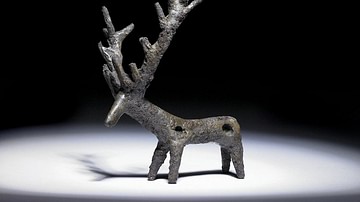
Definition
Copper in Antiquity
Copper was probably the first metal used by ancient cultures, and the oldest artefacts made with it date to the Neolithic period. The shiny red-brown metal was used for jewellery, tools, sculpture, bells, vessels, lamps, amulets, and death...

Image
Copper 'Oxhide' Ingot, Uluburun Shipwreck
A copper "oxhide" ingot from the Bronze Age Uluburun shipwreck, 1330-1300 BCE. The ship sank off the coast of Lycia and contained, amongst other cargo, ten tons of copper ingots. (Bodrum Museum of Underwater Archaeology, Turkey)
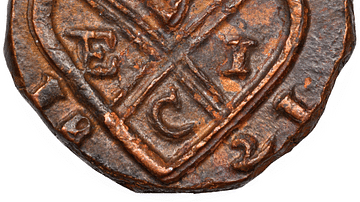
Image
Copper Coin of the East India Company
A copper coin minted by the British East India Company (EIC). From Bombay, 1821.
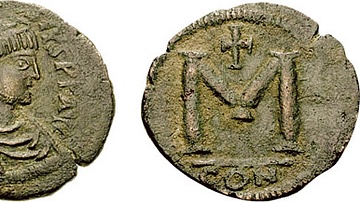
Image
Copper Follis of Anastasios I
A Byzantine copper coin, the follis, from the reign of Anastasios I, 491-518 CE. (Classical Numismatic Group, Inc. http://www.cngcoins.com)
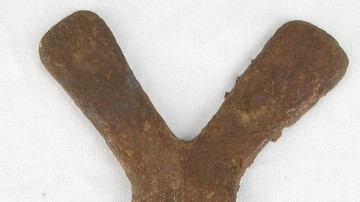
Image
Copper Curency Ingot, Luba Kingdom
A copper cross used as a currency by such central African states as the Kingdom of Luba (15-19th century CE). Height: 19.5 cm. (British Museum, London)
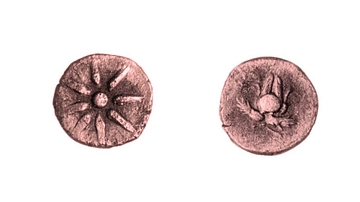
Image
Copper Coins Struck in Vani (Colchis)
Copper. The weights range: hemichalkon – 0,8 gr.-1,1 gr., chalkos – 1,2 gr.-2,1 gr. d=12-13/14-15 mm. for hemichalkon, d=11/13-16 mm. for chalkos. Obverse: Stylized effigy of lotus – Isis’ decoration. Reverse: Eight-pointed star...
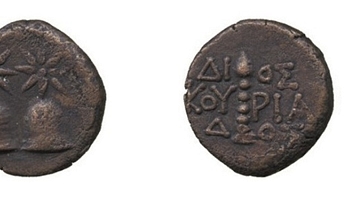
Image
Copper Coin of Dioscurias, Colchis
Copper. The weight range: chalkos e.g. – 1,3-3,1 gr., dichalkon e.g. – 3,7-5 gr., tetrachalkon e.g. – 6,1 gr. d≈14 mm. Obverse: Caps of Dioscuri, surmounted by six, or eight-pointed stars. Reverse: Thyrsos of Dionysus, i.e. of Mithridates...
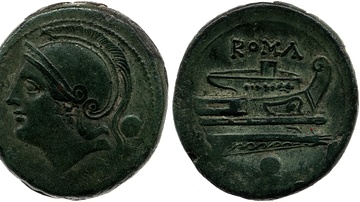
Image
Copper Coin Depicting Roma
A copper coin depicting the goddess Roma, a personification of Rome, or the war goddess Bellona on the obverse. On the reverse, the prow of a ship and the title "ROMA". Minted in Rome c. 217-215 BCE. (British Museum)
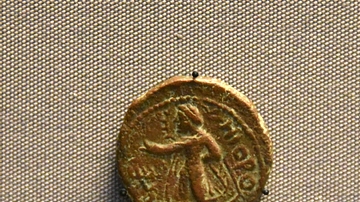
Image
Copper Coin from Manikyala Stupa
As the stupa (Buddhist monument) had been enlarged and rebuilt over the centuries, worshippers added new deposits. When he opened the stupa, General Ventura recognized that the deeper objects were the oldest ones. The last dedication, "deposit...
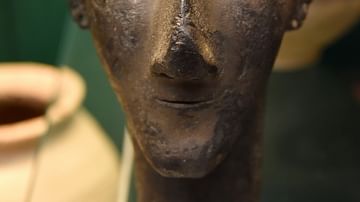
Image
Copper Alloy Female Mask
This is a copper alloy mask which was part of a woman's statue. The eye sockets were inlaid. The chin is long and sharp. The forehead continues upward as a central tang (now broken off). There are two holes at the sides of the upper part...